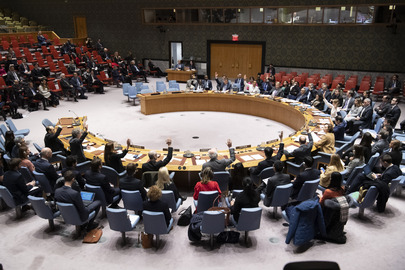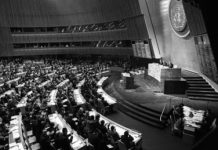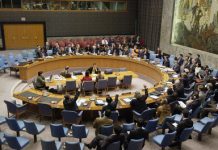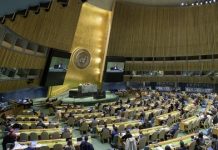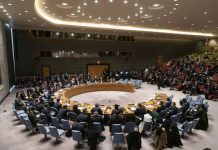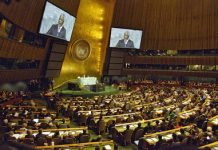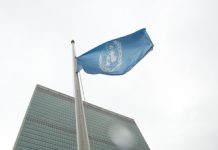Several refugee camps are nearly empty after Israeli forces launched Operation Iron Wall on 21 January, making it the longest operation in the West Bank since the second intifada, according to the agency.
The operation started in Jenin camp and then expanded to Tulkarm, Nur Shams, and El Far’a camps, displacing 40,000 Palestine refugees.
UNRWA said thousands of families have been forcibly displaced since Israel began carrying out large-scale operations in the occupied West Bank in mid-2023.
Cycle of displacement
“Repeated and destructive operations have rendered the northern refugee camps uninhabitable, trapping residents in cyclical displacement,” the agency stressed.
Last year more than 60 per cent of displacement was a result of Israel Defense Forces operations.
UNRWA said forced displacement in the occupied West Bank is the result of an increasingly dangerous and coercive environment.
“The use of air strikes, armoured bulldozers, controlled detonations, and advanced weaponry by the Israeli Forces has become commonplace – a spillover of the war in Gaza,” the agency noted.
Palestinian militant activity
Meanwhile, armed Palestinians are also increasingly active in the northern West Bank, deploying improvised explosive devices inside refugee camps, including near UNRWA facilities and civilian infrastructure.
The militants have engaged in violent clashes with both Israeli and Palestinian forces, UNRWA said. Furthermore, from December 2024 onwards, Palestinian forces operations further exacerbated displacement from Jenin camp.
New laws in effect
UNRWA reiterated that civilians and civilian infrastructure must be protected at all times and that collective punishment is never acceptable.
“Jenin Camp stands empty today, evoking memories of the second intifada. This scene stands to be repeated in other camps,” the agency said.
UNRWA stated that it no longer has any contact with the Israeli authorities following the implementation of two laws on 30 January, thus making it impossible to raise concerns about civilian suffering or the urgent need for humanitarian aid delivery.
The situation “puts at grave risk the lives of Palestine Refugees and the UNRWA staff that serve them.”
The laws ban UNRWA from operating in Israeli territory and prohibit Israeli officials from having any contact with the agency.
Source of original article: United Nations (news.un.org). Photo credit: UN. The content of this article does not necessarily reflect the views or opinion of Global Diaspora News (www.globaldiasporanews.net).
To submit your press release: (https://www.globaldiasporanews.com/pr).
To advertise on Global Diaspora News: (www.globaldiasporanews.com/ads).
Sign up to Global Diaspora News newsletter (https://www.globaldiasporanews.com/newsletter/) to start receiving updates and opportunities directly in your email inbox for free.


